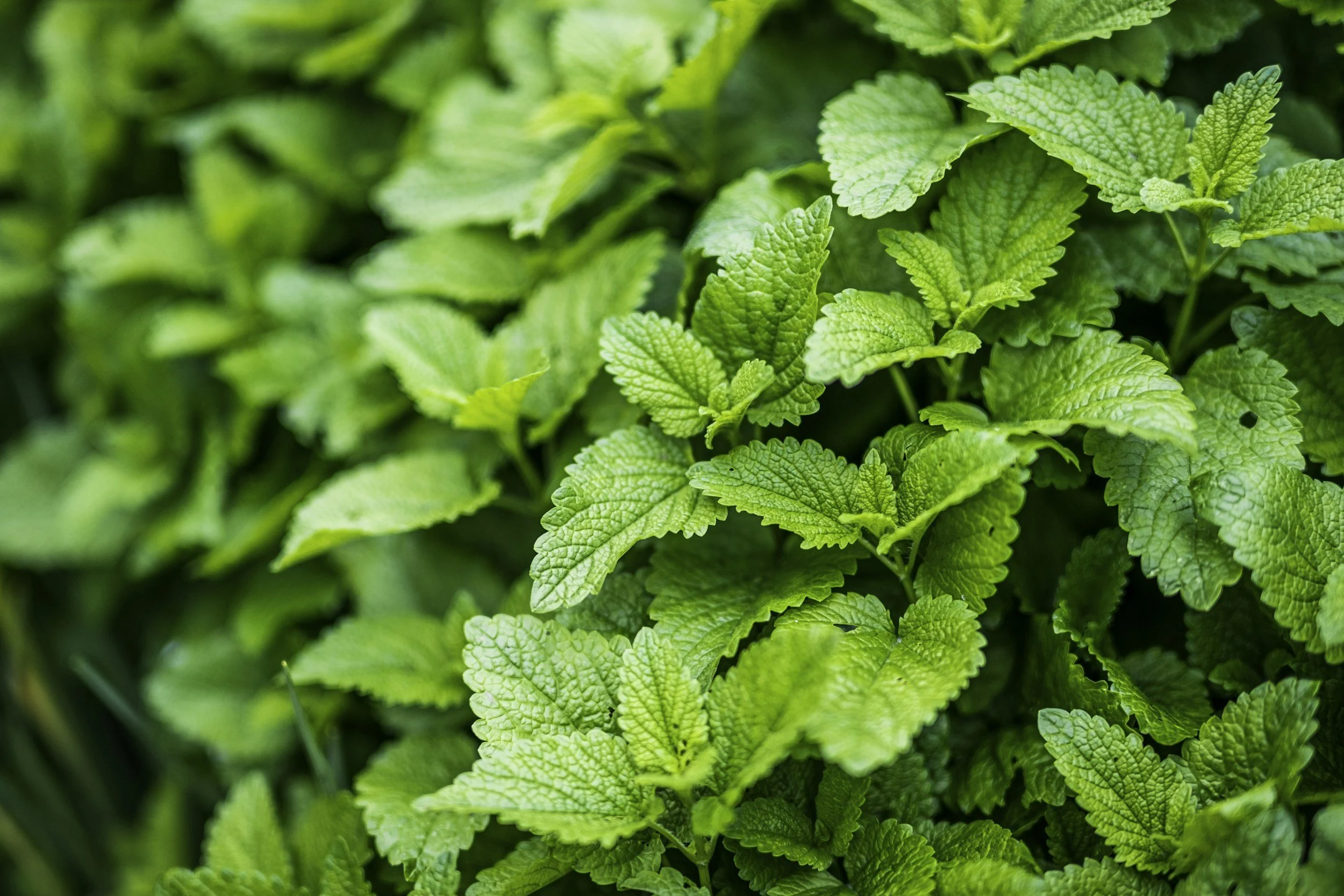5 Traditional Herbs for Anxiety — and the Science That Backs Them.
Anxiety is as old as we are. Long before supplements and pharmaceuticals, women turned to the garden, the wild hedgerow, and the herb shelf for support. These herbs weren’t just medicine, they were woven into rituals, kitchen remedies, and daily life.
And today? Modern research is catching up, showing how these plants interact with our nervous systems, hormones, and even the gut-brain axis.
Here are five folk herbs with a rich history of use for anxiety — and how to use them safely and effectively now.
Lemon Balm (Melissa Officinalis)
The ‘Gladdening Herb’
Medieval monks praised lemon balm for its ability to lift the spirits and ease melancholy. It’s calming without being sedating, making it ideal for daytime anxiety, nervous energy, and sleep support.
Benefits:
Calms the nervous system
Reduces anxiety
May support cognitive performance
Improves sleep onset and quality
Use:
Fresh or dried leaves in tea (1 tsp per cup, steep 10 mins). Lovely blended with chamomile or mint.
UK Sources:
Grow it yourself (best in pots – it spreads fast!)
Forage for it in the wild
Buy dried from Baldwins or Indigo Herbs
Caution: Avoid high doses if you're taking thyroid medication, as lemon balm may inhibit thyroid function.
Skullcap (Scutellaria Lateriflora)
The ‘Witch’s Herb’
Traditionally used in women’s rites and believed to protect against “madness,” Western skullcap is a nervine herb that calms without sedation. It’s especially helpful for a busy, overstimulated mind and tension headaches.
Benefits:
Eases racing thoughts
Calms tension and irritability
Supports deep relaxation
Use:
Best taken as a tincture — 30 drops in water, 1–2x per day.
UK Sources:
Buy tinctures from Hedra Herbals or Indigo Herbs
Make your own from dried Western skullcap
Important:
Stick to Western skullcap (Scutellaria lateriflora). Chinese skullcap (Scutellaria baicalensis) is a different plant used for inflammation and liver support. It won’t offer the same calming effects and has different safety considerations.
Chamomile (Matricaria Chamomilla)
The ‘Spirit Soother’
In the Middle Ages, chamomile was planted on graves to calm restless spirits. Today, it’s a gentle powerhouse, calming the mind, relaxing the gut, and helping with sleep and tension.
Benefits:
Supports digestion (via the gut-brain axis)
Calms the nervous system
Supports GABA (your brain’s calming chemical)
Aids sleep
Use:
2 tsp dried flowers per cup. Steep for 10 mins. Add honey or lemon to taste.
UK Sources:
Widely available — look for organic options like Neal’s Yard, TeaPig, or grow your own.
Extra tip: Chamomile also makes a beautiful bedtime bath soak or face steam.
Rose (Rosa spp.)
The ‘Heart Healer’
Roses have long been used in women’s healing, associated with emotional strength, grief, and love. The scent alone is known to reduce cortisol, your main stress hormone.
Benefits:
Mild mood lifter
Soothes the nervous system
Eases grief and heartache
Use:
Organic rose petals in tea, tinctures, bath soaks, or facial steams.
UK Sources:
Buy dried petals from Star Child or Baldwins
Forage wild dog roses (away from roads and pesticides).
Borage (Borago Officinalis)
The ‘Herb of Courage’
Roman soldiers drank borage wine before battle. In Celtic tradition, women used it in rituals to soothe sorrow and invoke strength. Borage supports adrenal function and hormonal balance — ideal during stress and emotional exhaustion.
Benefits:
Gentle adrenal support
Lifts low mood
May ease hormonal anxiety
Contains GLA (gamma-linolenic acid) — linked to mood regulation
Use:
Fresh flowers or leaves in salads or teas (light cucumber flavour), or infuse in honey or vinegar.
UK Sources:
Best grown at home — borage is hardy and self-seeds easily.
Caution:
Use in moderation. Borage contains low levels of pyrrolizidine alkaloids — not for long-term daily use or during pregnancy.
Then and Now — Why These Herbs Still Matter…
These herbs aren’t trends. They were used for centuries by women in kitchens, gardens, and ceremonies to bring calm, courage, and clarity — and that knowledge still matters today.
Modern science is delving into what tradition always knew: that plants can soothe the nervous system, balance hormones, and help us feel more grounded in overwhelming times.
Whether you sip them as tea, carry them in your pocket, or simply learn their stories, you’re reconnecting to a deeper way of caring for yourself.
You don’t have to choose between tradition and evidence. You can root into both.





